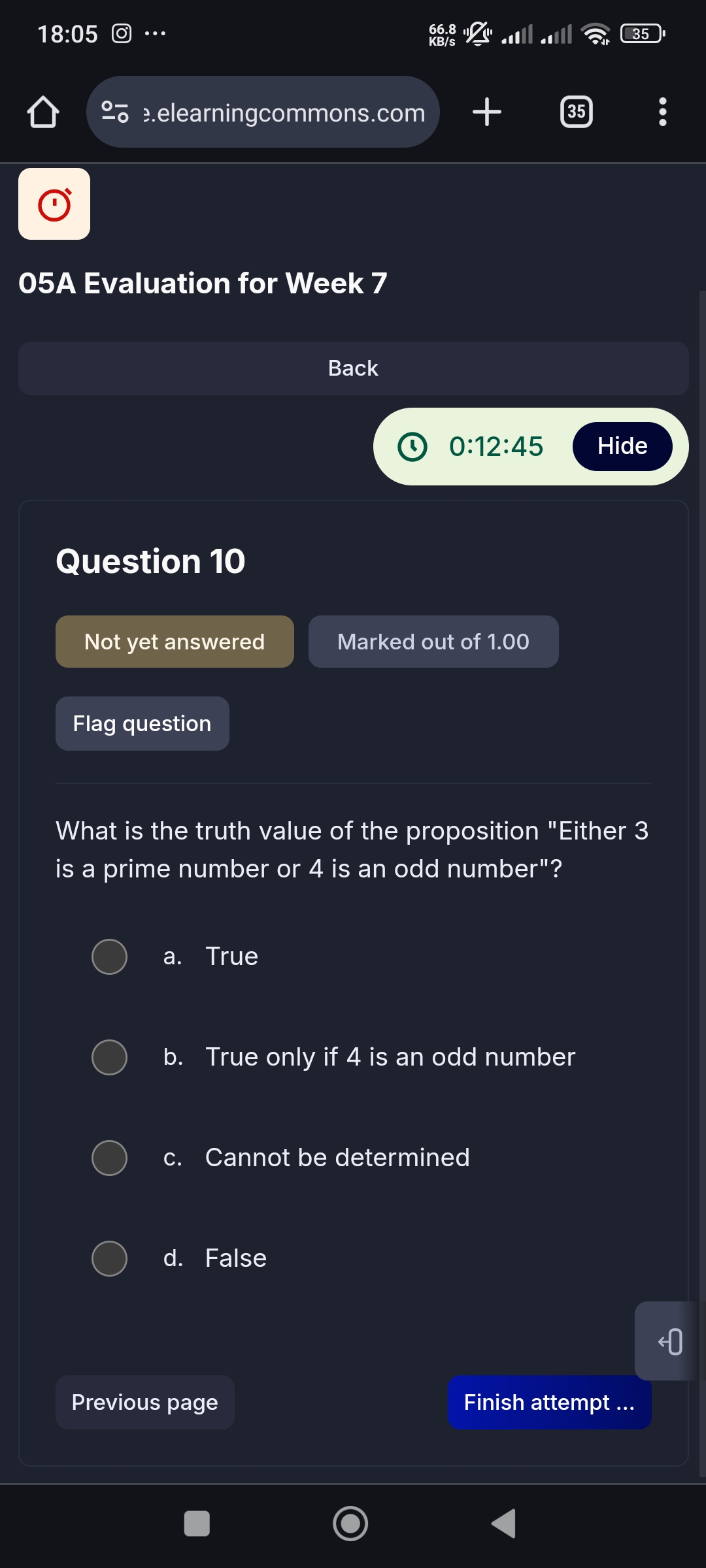What is the truth value of the proposition 'Either 3 is a prime number or 4 is an odd number'?

Understand the Problem
The question is asking for the truth value of a logical proposition involving a prime number and the properties of an odd number. Specifically, it addresses whether '3 is a prime number' or '4 is an odd number' is true or false.
Answer
True
Answer for screen readers
The truth value of the proposition is True.
Steps to Solve
- Evaluate the first statement "3 is a prime number"
The number 3 is an integer greater than 1 that has only two distinct positive divisors: 1 and itself (3). Therefore, this statement is true.
- Evaluate the second statement "4 is an odd number"
An odd number is defined as any integer that is not divisible by 2. Since 4 is divisible by 2, it is an even number. Therefore, this statement is false.
- Determine the logical "or"
In logical propositions, the statement "A or B" is true if at least one of the statements A or B is true. Here, we have:
- Statement A (3 is a prime number) is true.
- Statement B (4 is an odd number) is false.
Since statement A is true, the combined statement "3 is a prime number or 4 is an odd number" is true.
The truth value of the proposition is True.
More Information
The proposition combines two statements using the logical "or" operator. In logic, if one of the propositions is true, the entire statement is true. This is critical in analyzing compound statements in logic.
Tips
- Misinterpreting "or" as an exclusive "or." It's important to remember that in logic, "or" can mean inclusive (one or both conditions can be true).
- Confusing odd and even numbers; remember that odd numbers cannot be divided evenly by 2.
AI-generated content may contain errors. Please verify critical information